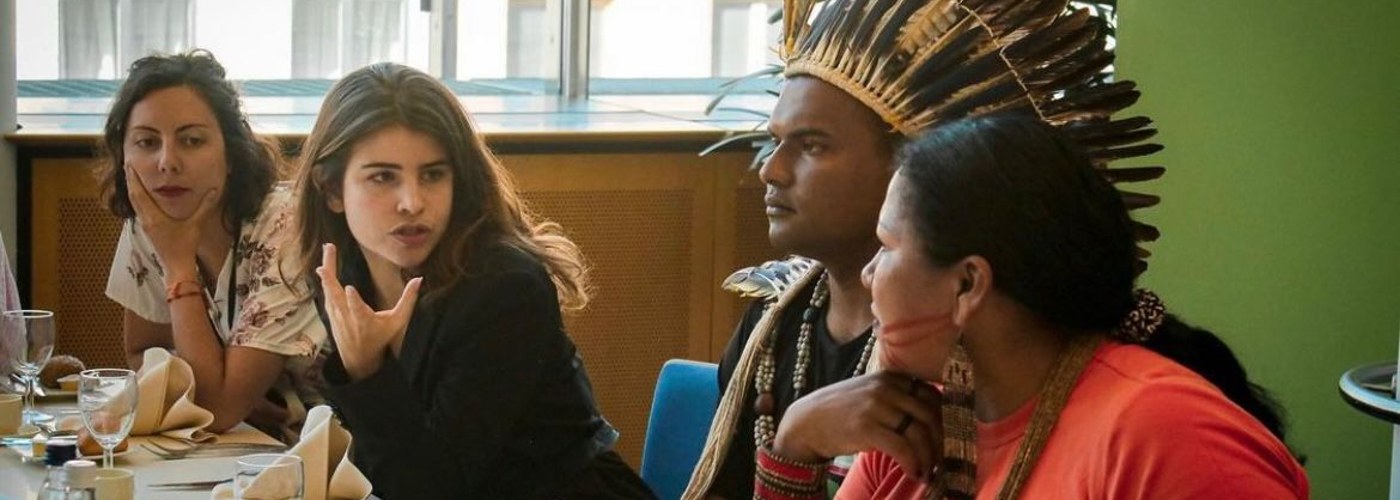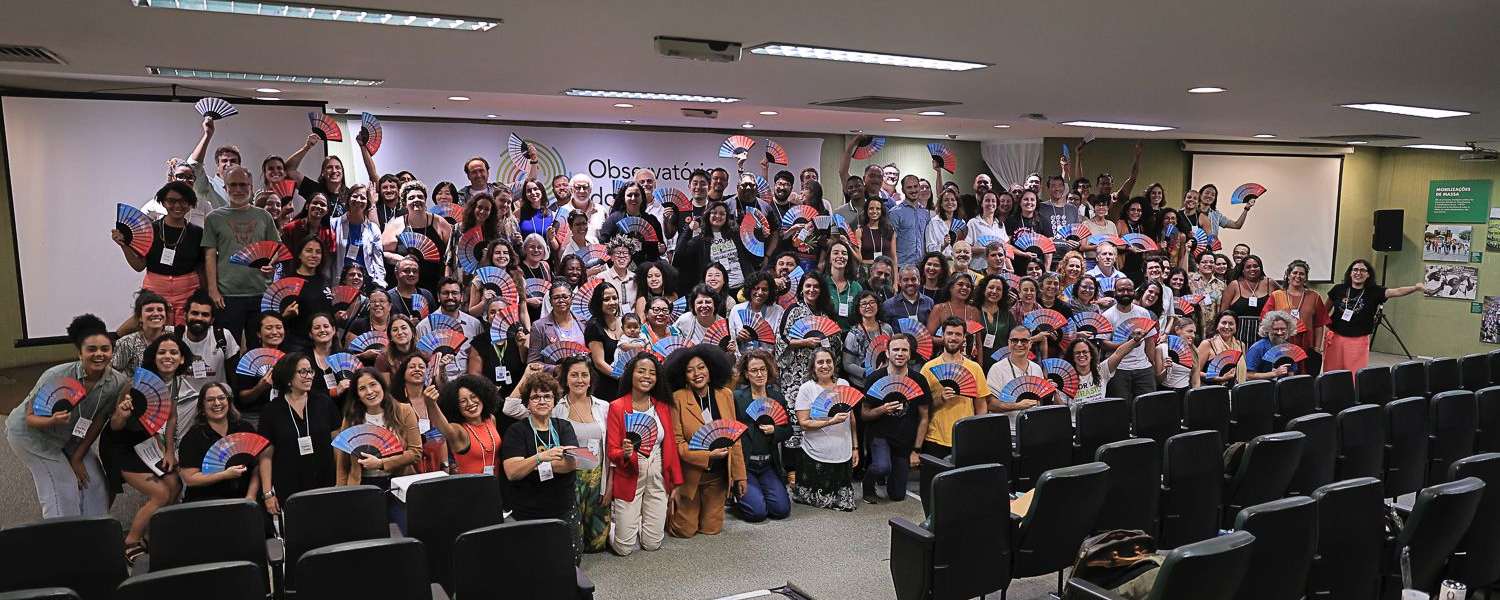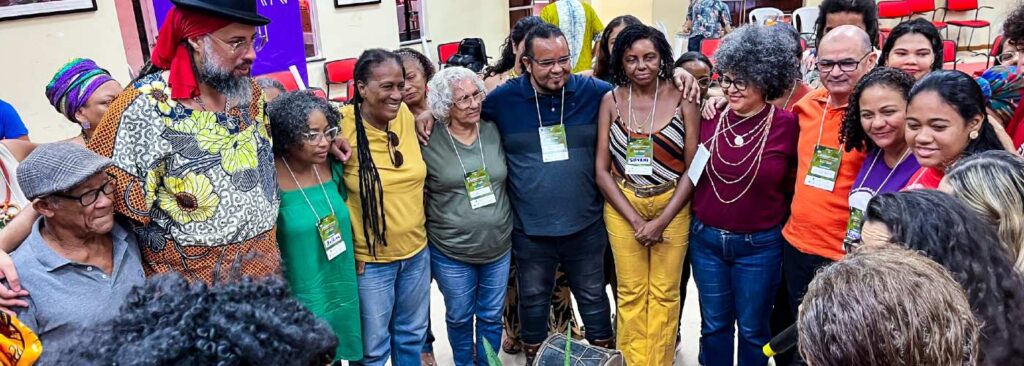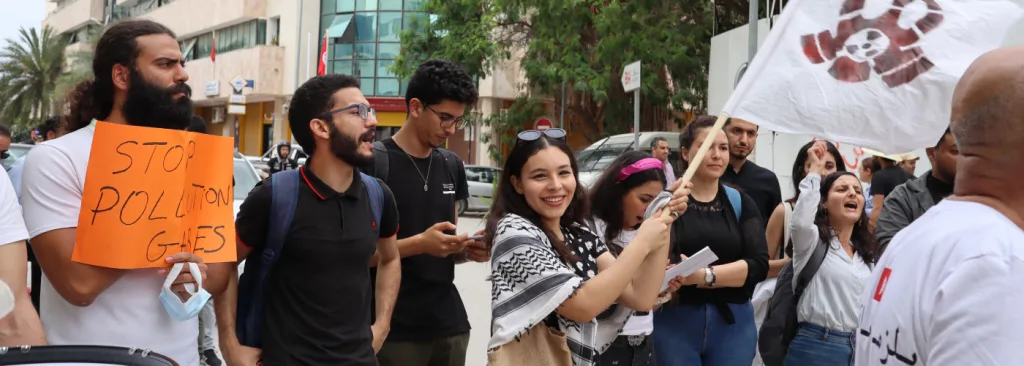The Climate Observatory is a coalition of Brazilian civil society organizations and an ally of Hivos. At the Observatory, Mariana Lyrio follows national and international debates on the environment and climate change. She also advocates for a new kind of politics, one that prioritizes protecting the environment, the climate, and the rights of Indigenous Peoples. We talked to her about the Observatory’s work and the current political situation in Brazil.
What inspires you to do your work?
What inspires me most in my work is witnessing how political decisions and discussions can lead to tangible and practical changes. For example, the election of President Lula in Brazil, followed by the appointment of Marina Silva as Minister of the Environment, marked a significant turning point in our environmental policy. Their leadership has so far led to a substantial reduction in deforestation in the Amazon, proving that political will can directly translate into meaningful environmental protection.
It’s also incredibly inspiring to participate in a movement that pursues positive change, whether protecting ecosystems, upholding the rights of Indigenous Peoples, or fighting against climate change.
What does the Climate Observatory do?
Since 2002, we’ve been a diverse yet cohesive network, currently made up of 120 Brazilian civil society organizations. Together, we work on the climate agenda and defending democracy. We focus on four key areas: knowledge production, national public policies, international policies, and public engagement. An example of knowledge production is the Greenhouse Gas Emissions and Removals Estimation System (SEEG), which provides annual estimates of greenhouse gas emissions in Brazil.
Regarding our political work and public engagements, our objectives are to rebuild the Brazilian socio-environmental and climate agenda and expand the scope of the debate on climate change in the country. Recently, we took action that involved both. We organized a course with Hivos that trained 38 young women and men living in the Amazon to gain access to spaces of power and influence decision-making processes. We also invited representatives from the government and parliament to join in discussions with them.
What’s the political situation like in Brazil at the moment?
Politics in Brazil are crazy. It’s all interesting, but very complicated and unpredictable. Congress is dominated by reactionary forces at the moment, and it’s even worse than during the Bolsonaro government [Brazil’s former president, responsible for many environmentally destructive laws]. President Lula has multiple agendas to advance, so unfortunately, the environmental agenda has been his bargaining chip to get the Parliament to pass his economic policies.
There are around thirty bills on the table in Congress right now – what we are calling the “Destruction Package” – which were originally proposed by the Bolsonaro government but have now come back under Lula. These bills are all extremely detrimental to the environment. The package is advancing quickly, while the government is struggling to find political capital to overrule it.
One bill in the package that has already passed is the so-called Poison Bill, which makes it much easier for pesticides to be approved. It removes the role of health and environmental agencies in deciding which pesticides are allowed and transfers that power to the Ministry of Agriculture, which tends to approve everything quickly. We are going to see the legalization of terrible pesticides, even those linked to cancers.
Also, Congress approved Marco Temporal, a law that nullifies Indigenous claims to vast swaths of land. It was part of an earlier package of Bolsonaro-era laws that Hivos, Observatório do Clima, and a group of Dutch parliamentarians campaigned against.
Now, we are also seeing numerous bills advance that weaken the Forest Code. This code is important because it prevents deforestation, for example, by ruling that farmers in the Amazon need to preserve at least 80 percent of native forest on their land.
But the Climate Observatory is not sitting idle. For example, we presented an alternative national climate plan last August, written by 60 member civil society organizations with input from Hivos. This plan puts the rights of women and local and Indigenous communities at the center of climate policy and calls on the government to make Brazil’s official climate plan much more ambitious.
What does the future bring?
Next year, COP30 (the annual United Nations climate negotiations) will likely take place in the Brazilian city of Belém. Considering Brazil’s strategic role in environmental protection, there is a lot of pressure for this event to succeed. For Brazil, this means presenting concrete steps to zero deforestation by 2030 and an energy transition strategy that foresees a drastic reduction in the use of fossil fuels.
At the same time, we are very worried that the next election in 2026 will see the return of a right-wing government. That possibility is always on our horizon.









